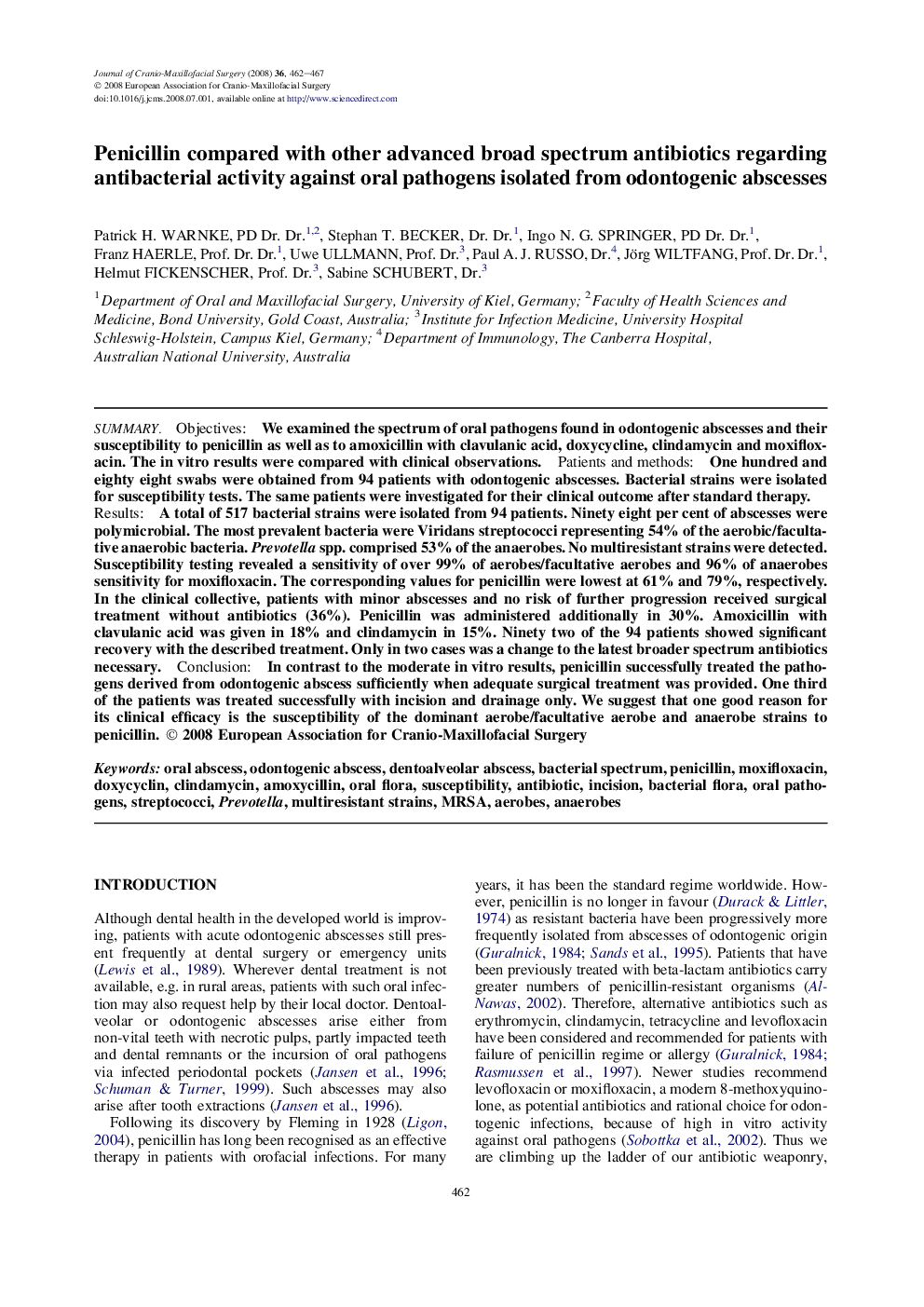| Article ID | Journal | Published Year | Pages | File Type |
|---|---|---|---|---|
| 3143994 | Journal of Cranio-Maxillofacial Surgery | 2008 | 6 Pages |
SummaryObjectivesWe examined the spectrum of oral pathogens found in odontogenic abscesses and their susceptibility to penicillin as well as to amoxicillin with clavulanic acid, doxycycline, clindamycin and moxifloxacin. The in vitro results were compared with clinical observations.Patients and methodsOne hundred and eighty eight swabs were obtained from 94 patients with odontogenic abscesses. Bacterial strains were isolated for susceptibility tests. The same patients were investigated for their clinical outcome after standard therapy.ResultsA total of 517 bacterial strains were isolated from 94 patients. Ninety eight per cent of abscesses were polymicrobial. The most prevalent bacteria were Viridans streptococci representing 54% of the aerobic/facultative anaerobic bacteria. Prevotella spp. comprised 53% of the anaerobes. No multiresistant strains were detected. Susceptibility testing revealed a sensitivity of over 99% of aerobes/facultative aerobes and 96% of anaerobes sensitivity for moxifloxacin. The corresponding values for penicillin were lowest at 61% and 79%, respectively. In the clinical collective, patients with minor abscesses and no risk of further progression received surgical treatment without antibiotics (36%). Penicillin was administered additionally in 30%. Amoxicillin with clavulanic acid was given in 18% and clindamycin in 15%. Ninety two of the 94 patients showed significant recovery with the described treatment. Only in two cases was a change to the latest broader spectrum antibiotics necessary.ConclusionIn contrast to the moderate in vitro results, penicillin successfully treated the pathogens derived from odontogenic abscess sufficiently when adequate surgical treatment was provided. One third of the patients was treated successfully with incision and drainage only. We suggest that one good reason for its clinical efficacy is the susceptibility of the dominant aerobe/facultative aerobe and anaerobe strains to penicillin.
